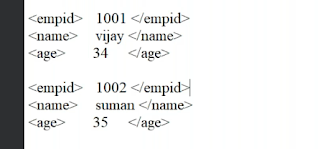ALV By Object Oriented Concept
- ALV stands for ABAP List Viewer or Application List Viewer.
- We can create ALV grid Using Object Oriented Concepts.
Steps for Creating ALV grid Using Object Oriented Concepts :-
1. Create a Field catalog.
a)Use SAP function module ( LVC_FIELDCATALOG_MERGE ) to create a field catalog merge.
b) Manually create a Field catalog.
2. Create a Custom Control ( layout element ) on a screen.
3. Create an object of the container class ( CL_GUI_CUSTOM_CONTAINER ).
4. Create an Object of the ALV Grid class ( CL_GUI_ALV_GRID ) and pass the object of container class in the parent parameter.
5. Use Method : Use ALV GRID class ( CL_GUI_ALV_GRID ) method ( SET_TABLE_FOR_FIRST_DISPLAY ) to display the data.
let’s implement with a real life scenario
Requirement :-
- User will provide a range of input for Sales Document Number ( VBELN ).
- We need to display details of that Sales Document Number from VBAK and VBAP table.
- We will display the details in form of ALV using the OOPS Concept.
Solution :-
-
Step 1 :- Create a executable program in ABAP Editor ( SE38 ).
-
Step 2 :- Create a type structure for few fields from VBAK table and for few fields from VBAP table.
-
Step 3 :- Now, we need to create a final type structure which will include fields from both the type structures.
-
Step 4 :- Create internal table and work area for all the above type structures.
-
Step 5 :- Create a select option, for Sales Document number, in which user will provide the input on Selection screen.
-
Step 6 :- In Start of Selection event we will write the select query to fetch data from VBAK table and VBAP table based on user input in Sales Document Number.
-
Step 7 :- fill the data into the internal table of final table.
Using Function Module LVC_FIELDCATALOG_MERGE to create a field catalog.
-
For using this function module, we would have to create a a global Structure from SE11 ( Data Dictionary ).
-
Step 8 :- Call this function module inside your program.
-
Step 9 :- Now, we need to create object for CL_GUI_CUSTOM_CONTAINER and CL_GUI_ALV_GRID.
- We have pass the the object of container as the parent for child.
-
Step 10 :- call method set_table_for_first_display.
-
Step 11 :- we need to call a screen where we will create the above container.
Code :-
*&---------------------------------------------------------------------*
*& Report ZAR_OOPS_ALV
*&---------------------------------------------------------------------*
*&
*&---------------------------------------------------------------------*
REPORT zar_oops_alv.
TYPES : BEGIN OF ty_vbak,
vbeln TYPE vbeln_va,
erdat TYPE erdat,
erzet TYPE erzet,
ernam TYPE ernam,
vbtyp TYPE vbtypl,
END OF ty_vbak.
TYPES : BEGIN OF ty_vbap,
vbeln TYPE vbeln_va,
posnr TYPE posnr_va,
matnr TYPE matnr,
END OF ty_vbap.
TYPES : BEGIN OF ty_final,
vbeln TYPE vbeln_va,
erdat TYPE erdat,
erzet TYPE erzet,
ernam TYPE ernam,
vbtyp TYPE vbtypl,
posnr TYPE posnr_va,
matnr TYPE matnr,
END OF ty_final.
DATA : lt_vbak TYPE TABLE OF ty_vbak,
ls_vbak TYPE ty_vbak,
lt_vbap TYPE TABLE OF ty_vbap,
ls_vbap TYPE ty_vbap,
lt_final TYPE TABLE OF ty_final,
ls_final TYPE ty_final.
DATA : lt_fieldcat type LVC_T_FCAT.
DATA : lv_vbeln type vbeln_va.
SELECT-OPTIONS : s_vbeln for lv_vbeln.
START-OF-SELECTION.
select vbeln erdat erzet ernam vbtyp
from vbak into table lt_vbak
where vbeln in s_vbeln.
If lt_vbak is not INITIAL.
select vbeln posnr matnr
from vbap
into table lt_vbap
FOR ALL ENTRIES IN lt_vbak
where vbeln = lt_vbak-vbeln.
Loop at lt_vbap into ls_vbap.
ls_final-posnr = ls_vbap-posnr.
ls_final-matnr = ls_vbap-matnr.
READ TABLE lt_vbak into ls_vbak with key vbeln = ls_vbap-vbeln.
if sy-subrc eq 0.
ls_final-vbeln = ls_vbak-vbeln.
ls_final-erdat = ls_vbak-erdat.
ls_final-erzet = ls_vbak-erzet.
ls_final-ernam = ls_vbak-ernam.
ls_final-vbtyp = ls_vbak-vbtyp.
endif.
APPEND ls_final to lt_final.
ENDLOOP.
CALL FUNCTION 'LVC_FIELDCATALOG_MERGE'
EXPORTING
* I_BUFFER_ACTIVE =
I_STRUCTURE_NAME = 'ZAR_SALES_ORDER_STRUCTURE'
* I_CLIENT_NEVER_DISPLAY = 'X'
* I_BYPASSING_BUFFER =
* I_INTERNAL_TABNAME =
CHANGING
ct_fieldcat = lt_fieldcat
EXCEPTIONS
INCONSISTENT_INTERFACE = 1
PROGRAM_ERROR = 2
OTHERS = 3
.
DATA(lo_cont) = new CL_GUI_CUSTOM_CONTAINER( CONTAINER_NAME = 'CONT' ).
DATA(lo_grid) = new CL_GUI_ALV_GRID( I_PARENT = lo_cont ).
CALL METHOD lo_grid->set_table_for_first_display
CHANGING
it_outtab = lt_final
it_fieldcatalog = lt_fieldcat
EXCEPTIONS
invalid_parameter_combination = 1
program_error = 2
too_many_lines = 3
others = 4
.
call screen '0100'.
endif.
*&------------------------------------------------------------------
*&End of Program
*&-----------------------------------------------------------------
Execute the Code :-
- Press F8.














.png)

.png)
Comments
Post a Comment